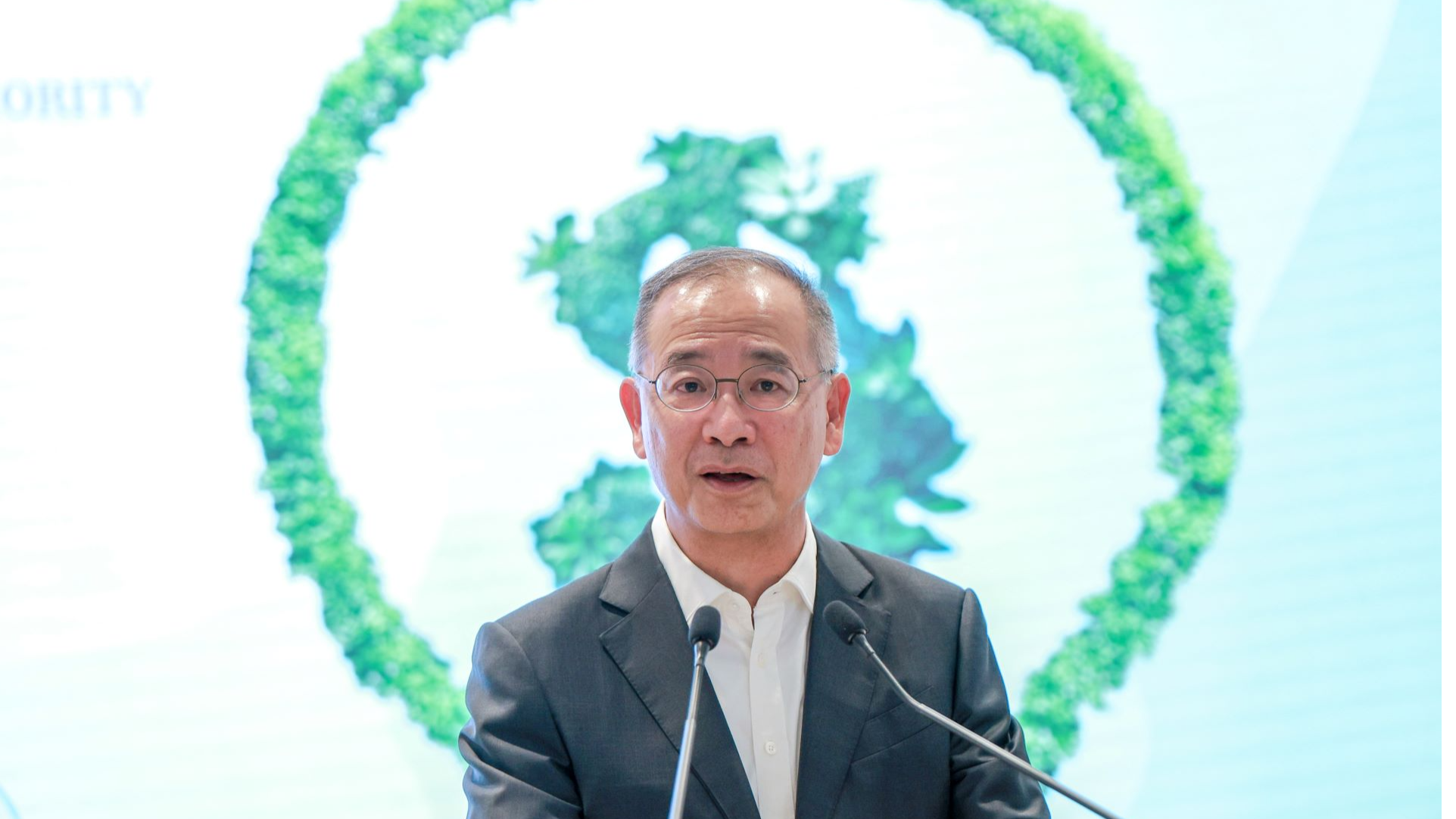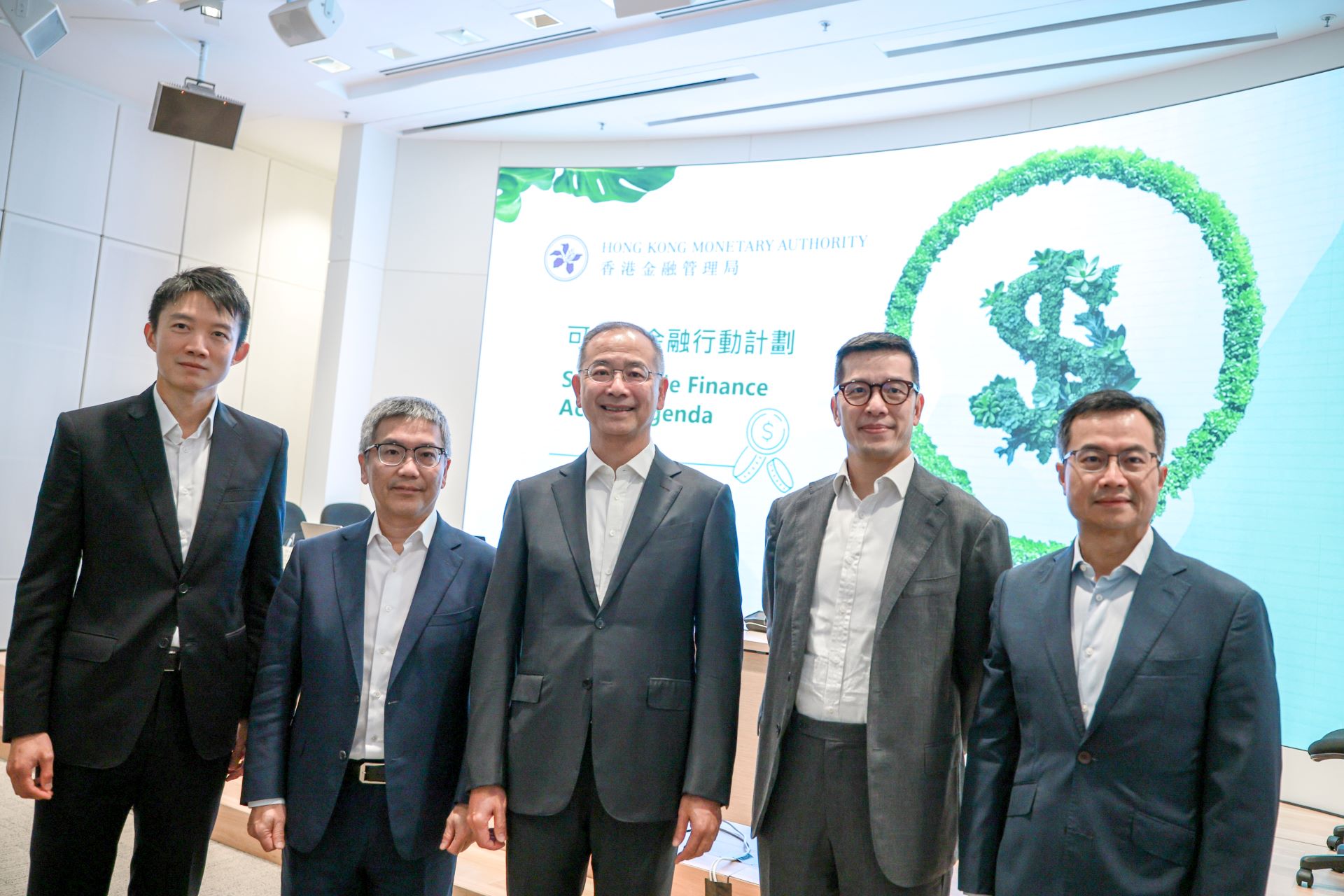
The Hong Kong Monetary Authority (HKMA) unveiled a sustainable finance timetable on Monday, requiring all banks to achieve net-zero emissions in their operations by 2030, in a bid to entrench the city’s role as Asia’s sustainable finance center.
The Sustainable Finance Action Agenda outlines a roadmap for the city’s green transition, covering banking, the Exchange Fund, sustainability disclosures, green technologies, and the talent pool.
A key feature of the agenda is the requirement for banks to achieve net zero in their operations by 2030, and in their financed emissions by 2050. The latter goal involves the managed phasing-out of financing for carbon-intensive assets.
READ MORE: BEEAH commits to achieving net-zero emissions by 2040
The banks must submit regular transition plans, consisting of decarbonization and financing targets, to the HKMA starting from 2030, adhering to a “comply or explain” approach.
The banks must also enhance transparency on climate-related risks and opportunities, aligning disclosures with international frameworks and standards.
At a news conference on Monday, Eddie Yue Wai-man, chief executive of the HKMA, said, “Hong Kong as Asia’s sustainable financial hub has both the duty and capability to facilitate sustainable capital flows, ensuring that banks manage risks associated with companies transitioning to the net zero emissions.”
He called on industries to join with the HKMA “to take more effective action, so as to consolidate Hong Kong’s position as the sustainable finance hub in the region and support the sustainable development of Asia and beyond”.

Arthur Yuen Kwok-hang, deputy chief executive of the HKMA, noted that climate change is an emerging and forward-looking long-term risk for the banking industry.
He said he hopes that the industry can handle related work systematically and use the requirement for banks to propose specific transition plans as a means to address this issue.
Yuen said that the transition plans will involve response strategies, management arrangements, and communication relationships with customers.
“The HKMA will provide support to the industry, including issuing guidelines to banks to support their planning efforts, measuring standards to observe whether transition plans are in place, and providing tools needed for scenario analysis,” Yuen added.
The agenda also pledged to prioritize environment, social and governance investments across all asset classes for the Exchange Fund to achieve the net zero target by 2050.
READ MORE: China leads the way in quest to meet clean energy needs
The HKMA disclosed that the weighted average carbon intensity of the fund’s public equity holdings was down 46 percent since 2017.
The agenda stated that the HKMA will encourage more borrowers, especially those from the Chinese mainland and regions involved with the Belt and Road Initiative to use Hong Kong to raise sustainable financing.
In 2021, the Hong Kong Special Administrative Region set a goal of achieving carbon neutrality by 2050, with an interim target of halving carbon emissions from 2005 levels by 2035.
Contact the writer at tianyuanzhang@chinadailyhk.com


